
Super Summer Community Comeback Camp coupled with family dinners strengthened bonds and built community in Rankin.
- Eight-week summer camp for children aged six to 12
- 30 campers attended this summer, experiencing a variety of learning activities: arts projects, STEM, cooking, and lessons from guest educators
- Deeply connects academic enrichment with families and the community
By Faith Schantz, Contributing Writer for A+Schools
The Rankin Christian Center has sponsored a summer camp for many years. The agency serves Mon Valley communities with an after-school program, scholarships for Woodland Hills High School students, a food pantry, and more. This year, due to a labor shortage, Executive Director Darlene McGregor couldn’t find enough staff to put on the camp for more than one afternoon a week. But like the community of Rankin, which she describes as “a lot of people in a small area,” she packed those half days with learning and fun.

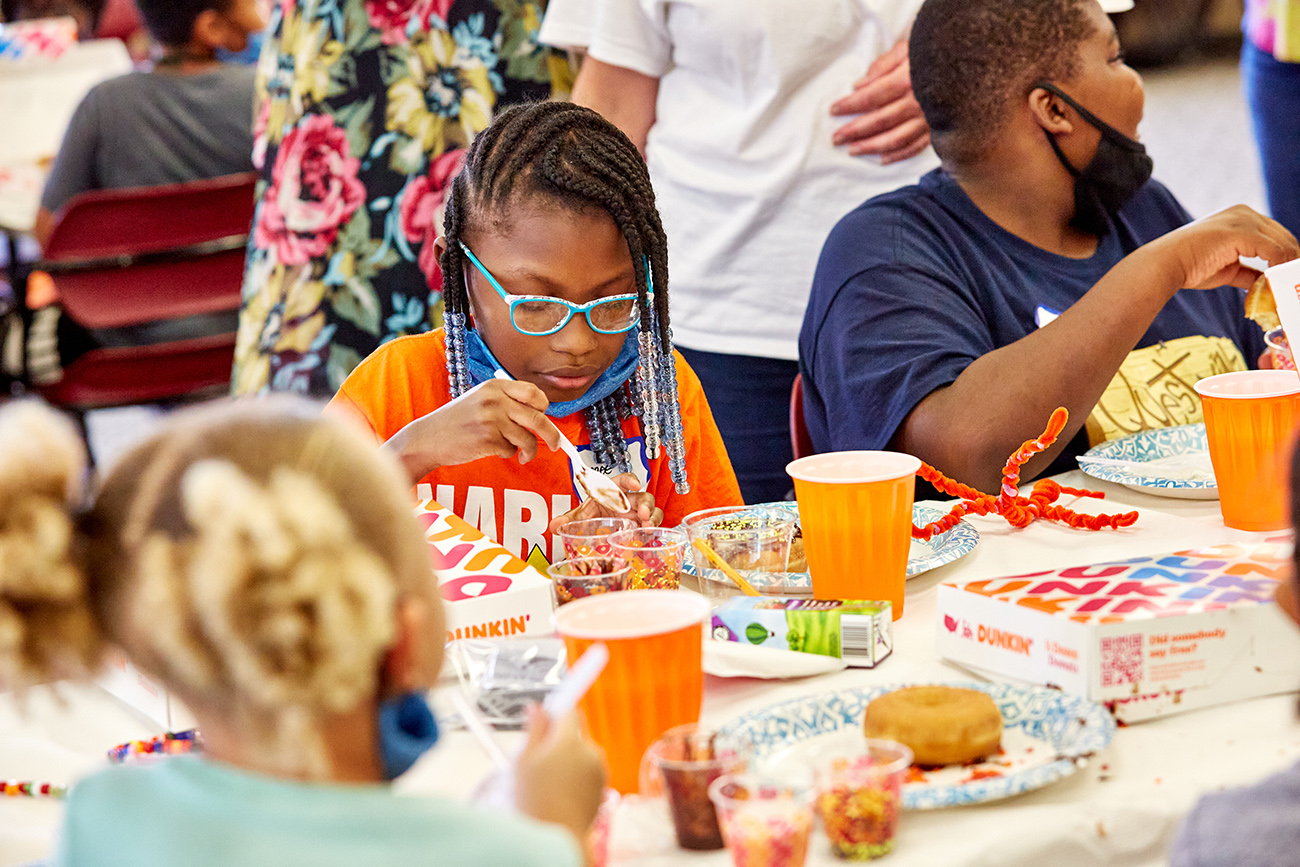
For the eight-week Super Summer Community Comeback Camp, McGregor and her staff drew on a variety of resources from the region. On the first day, the 30 six- through 12-year-olds silkscreened T-shirts with a staffer from the Braddock Carnegie Library’s print shop. Another day, a librarian from the Carnegie Free Library of Swissvale read books about the Olympics to campers, who were surprised at how young Olympic athletes begin to train. Staff from the Pittsburgh Zoo & PPG Aquarium brought animals for campers to observe, and an educator from the Carnegie Science Center showed dinosaur-related artifacts and brought cups and strings to make simulated dinosaur sounds.
Former NFL player and Woodland Hills High School graduate Chris Edmonds taught fitness routines, and the children “swarmed” him, McGregor says. They completed art projects with resident artist Sandy Kessler Kaminski, who collaborated with the Center on work for the Rivers of Steel’s Alloy Pittsburgh 2021. Programming was rounded out with STEM, crafts, and cooking, including modeling the phases of the moon and making pretzels. “Every activity brought out something new for them,” one parent said.

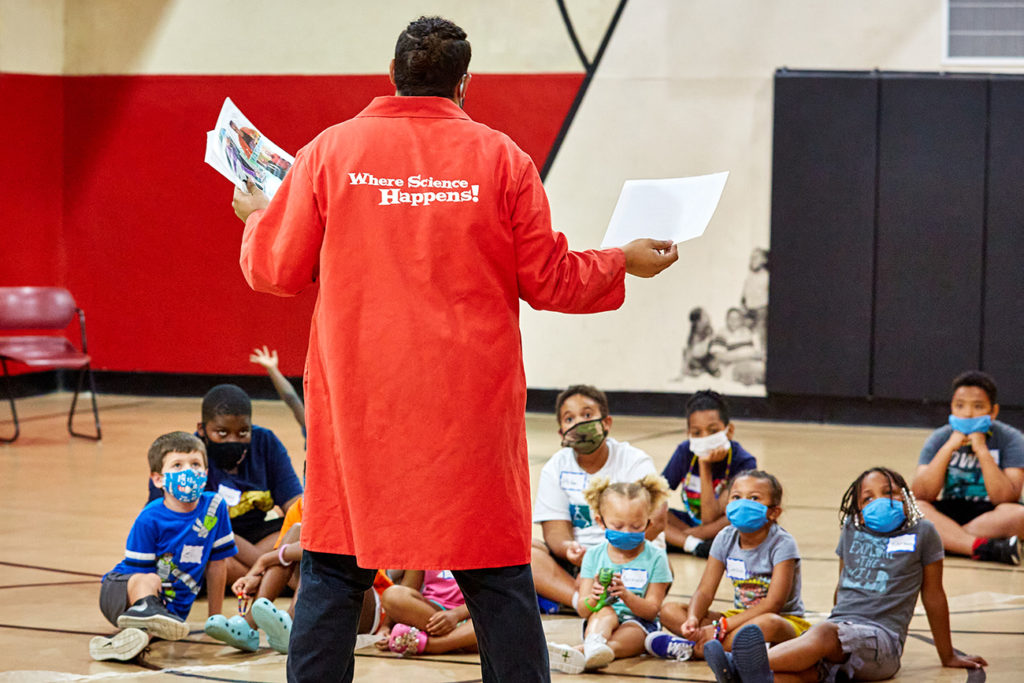
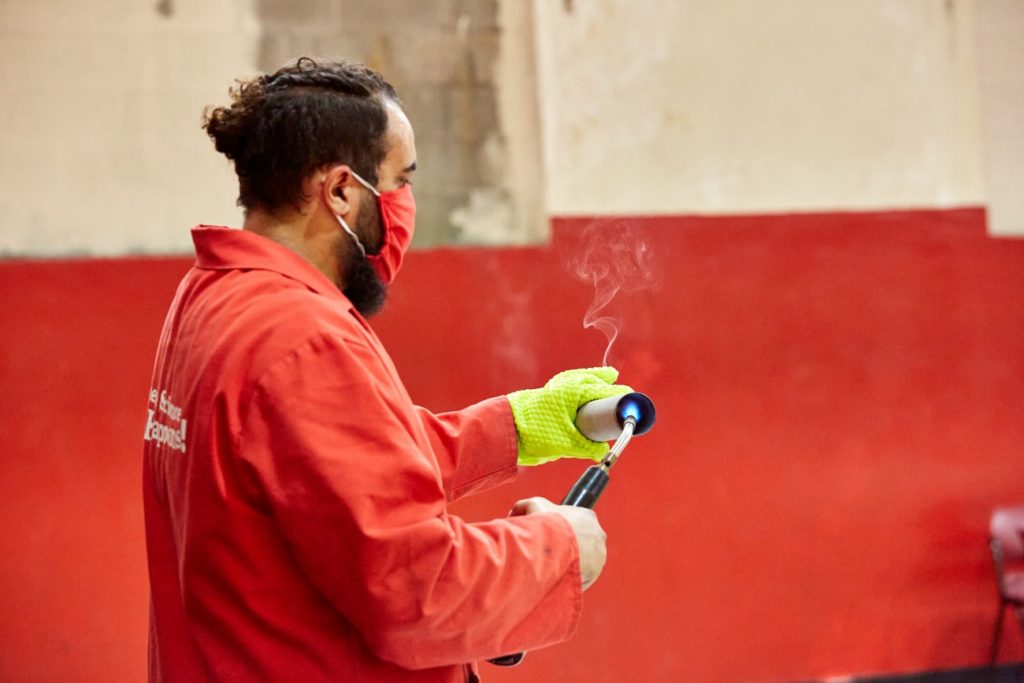
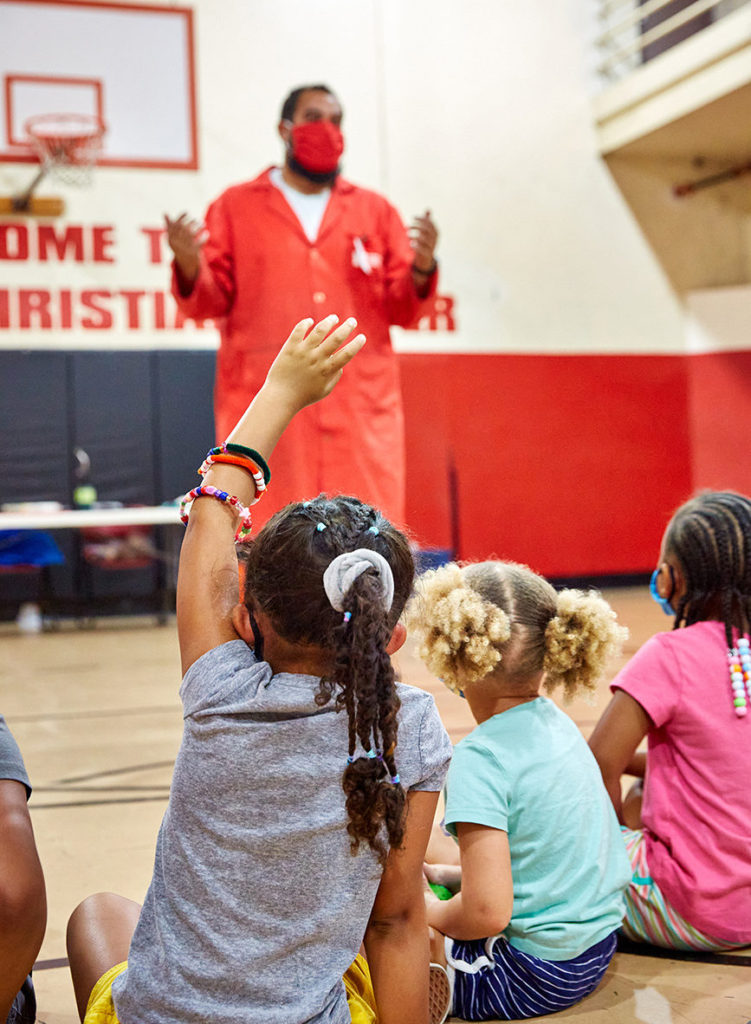
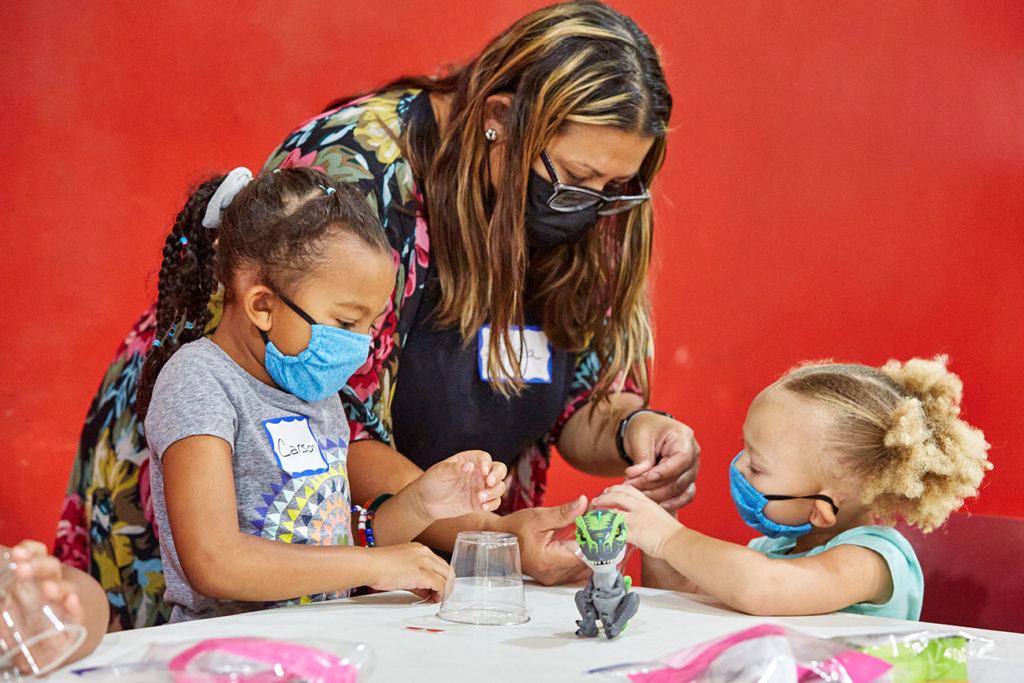
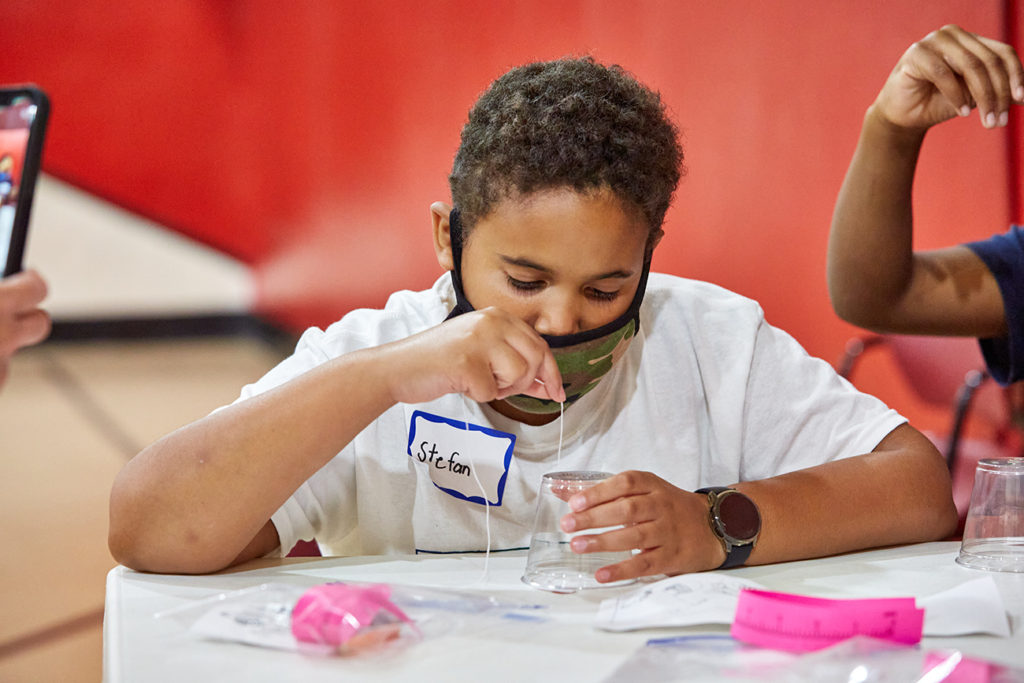
Campers wanted to be “out in the world and do different things and not be held back…They just wanted to be free.”
– Darlene McGregor, executive director
The Center also opened its doors to campers’ families and the broader community for family dinners one evening a week. Edmonds, whose fitness program “Athletic Trauma Unit” includes a nutrition component, served dinner from his food truck one night. Meals were followed by games and other forms of entertainment. McGregor “saw a lot of bright eyes” when “Weird Eric” demonstrated his magic tricks and balloon art, and a performer from Mad Science of Pittsburgh awed the group with fire and ice experiments. For McGregor, who was named executive director shortly before the pandemic, the dinners allowed her to introduce herself in that role. “I was able to talk to a lot of the community members and see what they want for their children,” she says.
While the camp was action-packed, in calmer moments staff intentionally prepared children to go back to school, by encouraging them to pay attention, be “present in the activity,” listen, and follow directions. Staff also made space for children to share their feelings about the upcoming school year and their fears about the pandemic. A boy from the South, who was spending the summer with his grandmother in the area, asked, “Y’all got Covid here, too?” His question became a teaching opportunity.
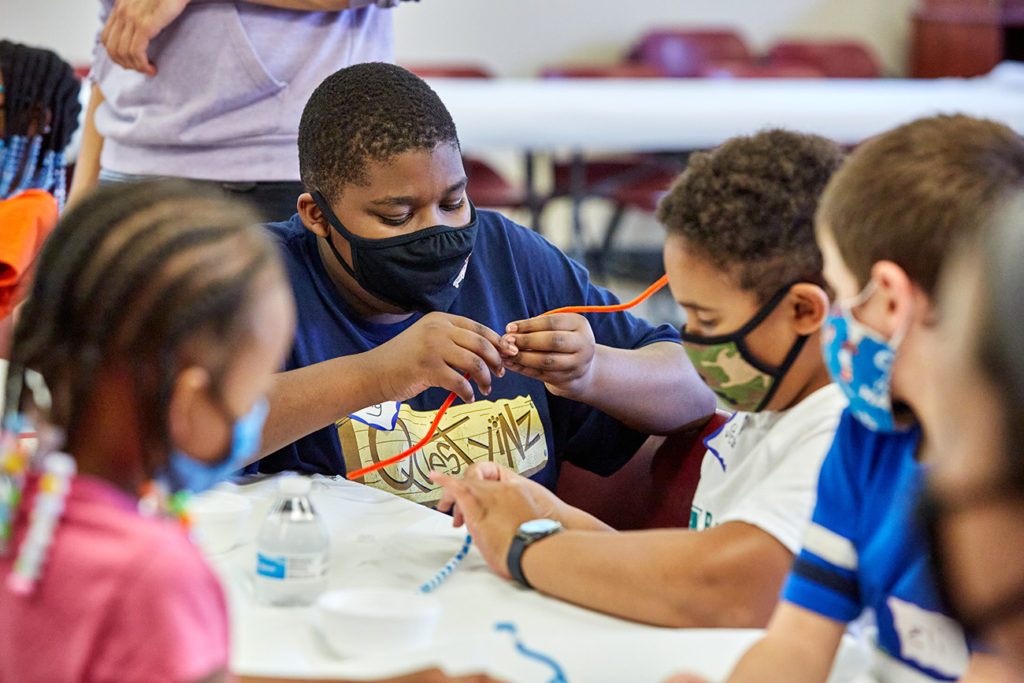
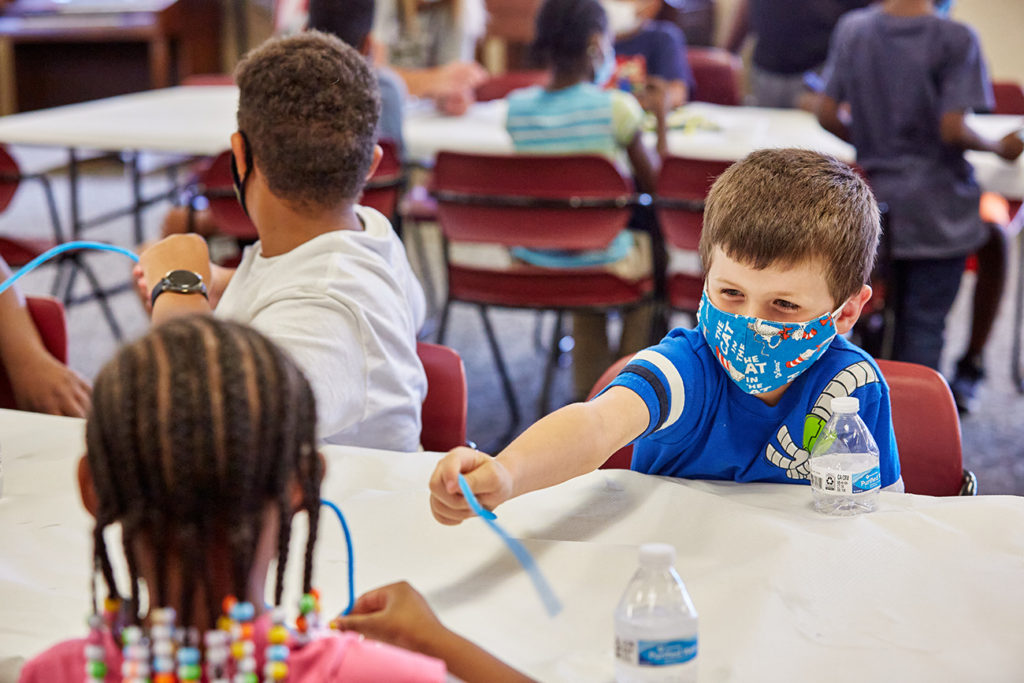
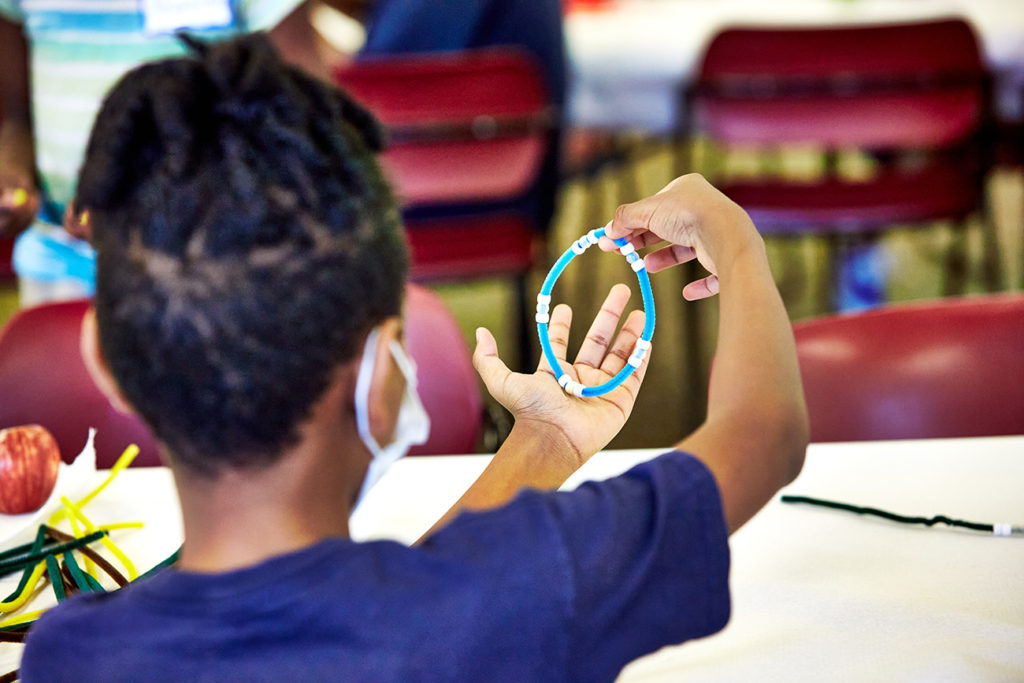
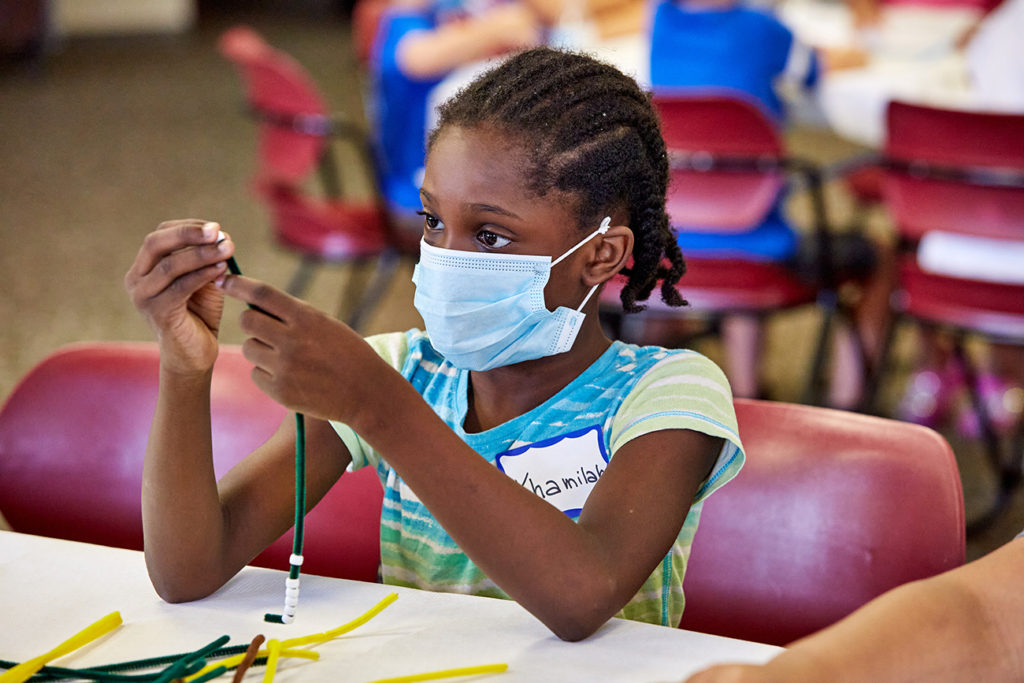
With more staff, Rankin Christian Center could expand camp to additional days, deepening their impact on local learners.
Overall, McGregor calls the campers a “happy bunch.” They wanted to be “out in the world and do different things and not be held back” after so much time at home. “They just wanted to be free,” she says.
McGregor plans to continue the family dinners, a unique feature of the camp that she feels strengthened the sense of community for all groups. Along with the fun activities, she hopes the children remember that adults reached out their hands to help them through a time of uncertainty and stress. She wants them to know they are still a part of that community, even after going their separate ways.
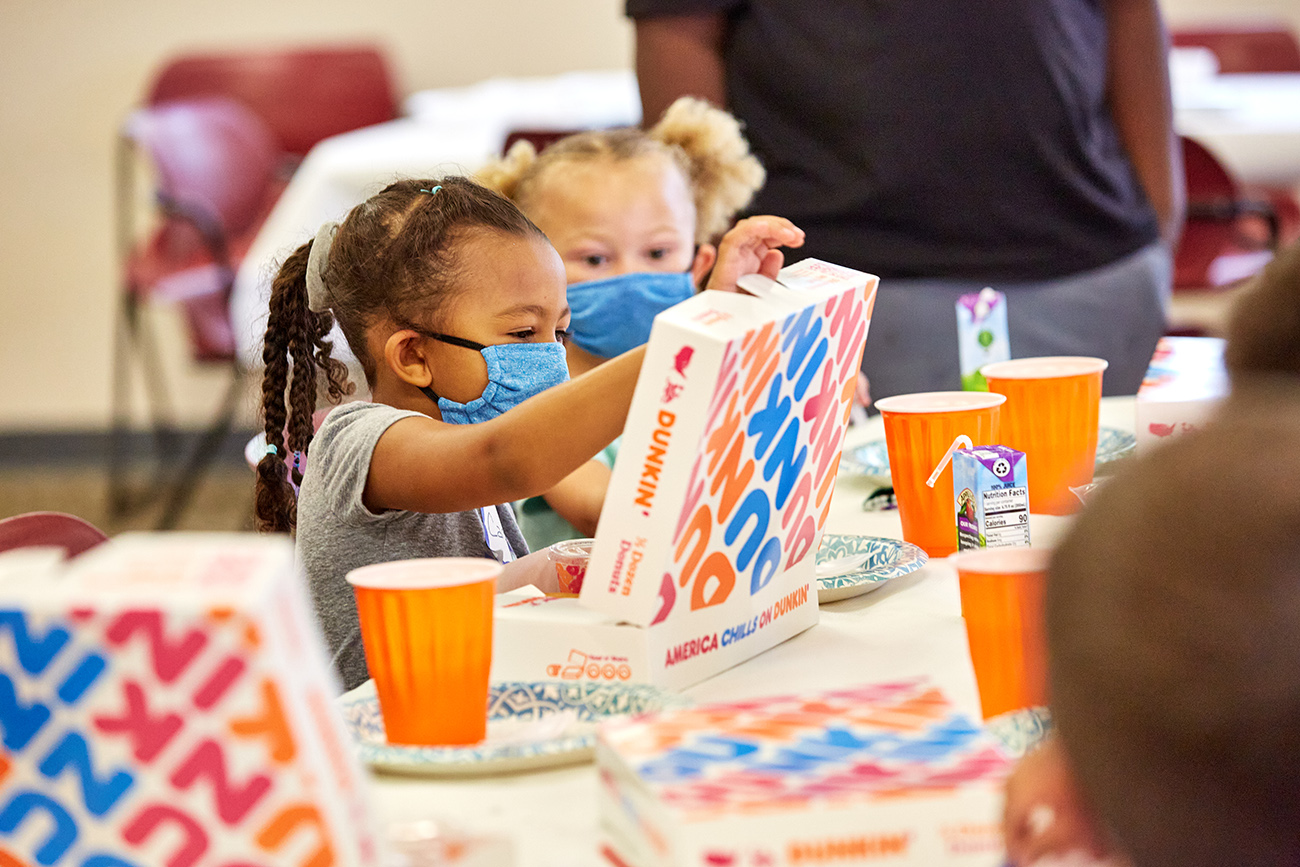
What if we implemented proactive summer learning staffing strategies at the system, district, and provider levels?